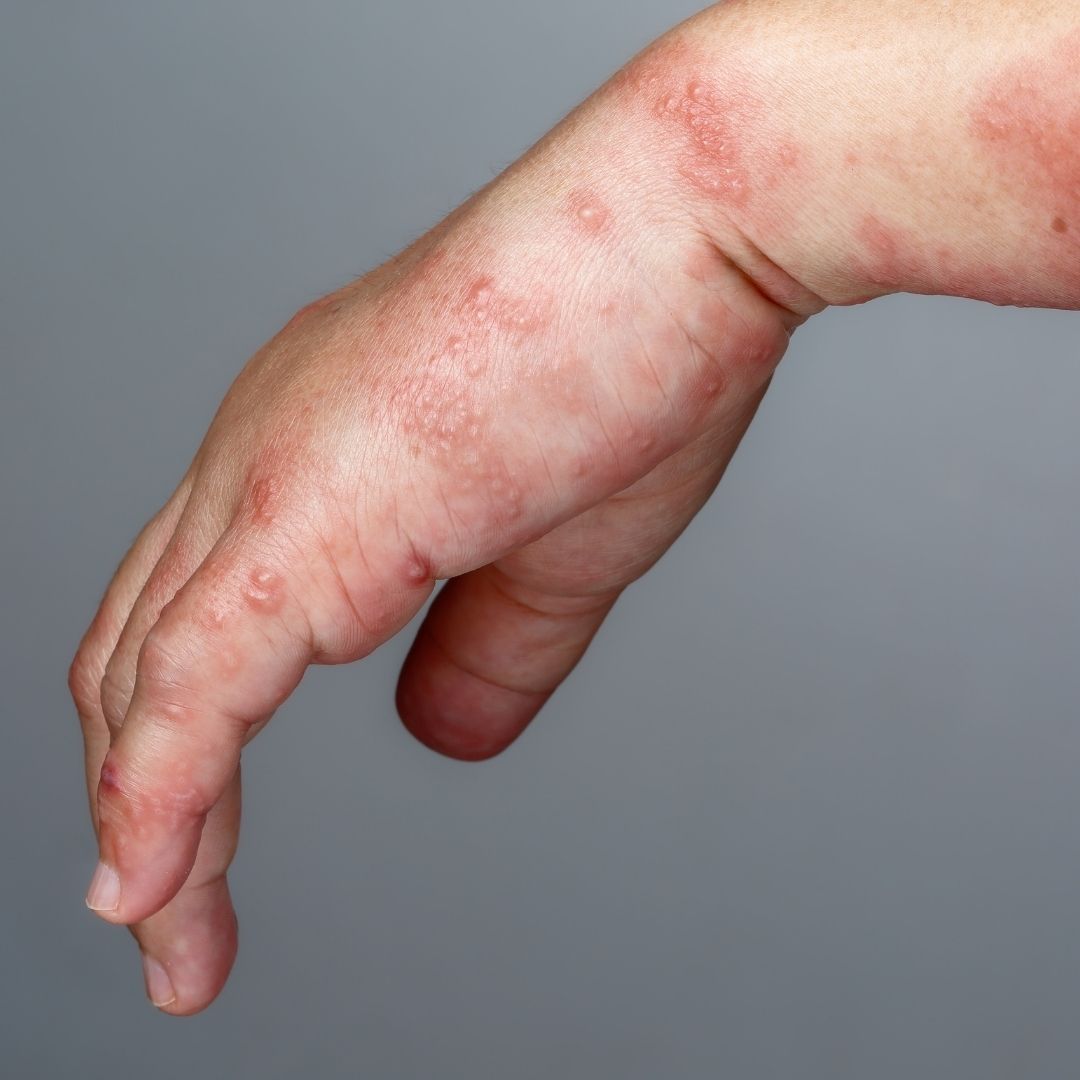By Dr. Peter Klapper Ph.D.
What is Shingles?
Shingles is an infection caused by the varicella-zoster virus, which also causes chickenpox. Shingles can only occur in people who have had chickenpox sometime in their life as it is caused by the reactivation of the original chickenpox virus which remains dormant in the system after the initial episode. Therefore, anyone who does not have the virus in their system cannot develop shingles.
It is estimated that more than a million Americans develop shingles each year, and yet very few of these people know much about shingles. This disease is most common in people over age 50 but can occur in anyone who has had chickenpox. Continue reading to learn all about shingles.
Is Shingles Contagious?
Shingles is not contagious, and it is not possible for someone to develop shingles (reactivate their own chickenpox virus) by coming into contact with someone who has shingles. However, an outbreak of shingles may spread the chickenpox virus to anyone who has not already contracted chickenpox before. It is not common, though, since it can only be contracted through direct contact with the fluid from the shingles blisters. A person with shingles is no longer contagious (able to spread the chickenpox virus) when their blisters have dried out and scabbed over - usually after the first week of the outbreak.
Shingles Symptoms
The first symptoms of shingles are often an itchy, tingling, or sharp pain just under the skin. This may be accompanied by a fever, chills, nausea, or headache. A few days after these symptoms begin, a rash will appear, starting with reddened skin, then developing into small blisters. The rash most often occurs on the torso or face, and usually is confined to one side of the body (along the affected nerve). The blisters will fill with fluid, then dry out and scab over after a few days. The level of discomfort caused by the rash varies from person to person and can range from mild pain and itching to intense pain and skin sensitivity.
Complications of Shingles
Although shingles can be very painful and more than a little uncomfortable, it rarely poses a serious medical threat to sufferers. However, there are a few conditions to be aware of, which have been known to develop as a result of shingles.
PHN or postherpetic neuralgia - This is when the pain of shingles continues long after other symptoms have taken their leave. The pain is usually worse than that suffered during the initial shingles outbreak and has been known to continue for several years in some patients. Treatment involves prescription pain relievers, antidepressants, anticonvulsants, or steroids to control the pain. Methods such as TENS (transcutaneous electrical nerve stimulation) or nerve blocks may also be used in extreme cases.
Infection - If shingles is left untreated, it may become infected and spread to other areas of the body. If shingles develops on the face, it is very important to see a doctor, since the virus may spread to the eyes and cause serious damage, sometimes even blindness if left untreated.
Ramsay Hunt syndrome - This condition may occur if a facial nerve is affected by shingles. Symptoms include dizziness, ear ache, loss of hearing, or loss of taste. Complications from this condition may include ear damage, facial paralysis, or inflammation of the brain called encephalitis.
How to Treat Shingles
Shingles is treated with antiviral medications, ointments, and pain relievers. Sometimes, early treatment may limit the duration of the shingles outbreak but does not always guarantee a quick recovery. To help prevent infection and other possible complications, it is important to keep the rash area clean and free of bacteria, and to wear loose clothing to prevent chafing and irritation.
If the rash is particularly itchy, a cool compress may be helpful, as will soothing lotions or baths. Be sure to avoid over-cleaning the area, however, as it may only further irritate the rash. It is also a good idea to get enough rest and eat a healthy diet, as both will help your immune system fight off the infection.
Natural remedies for shingles such as Nerve Pain Management from Forces of Nature have proven highly effective and are a safe way to combat shingles.
Preventing Shingles
Shingles cannot yet be prevented. Scientists have not yet discovered the exact cause for shingles to occur, and therefore have no way of predicting or preventing it. However, since it is caused by the chickenpox virus, it is believed that preventing, and perhaps eradicating chickenpox will be the end to shingles as well. Since the chickenpox vaccine was introduced in 1995, the number of shingles cases seems to have dropped somewhat. Since the vaccine contains the chickenpox virus, though, it is still capable of producing shingles later on. There is hope that the chickenpox virus will weaken over the next few generations and eventually die out, taking the shingles virus with it.


